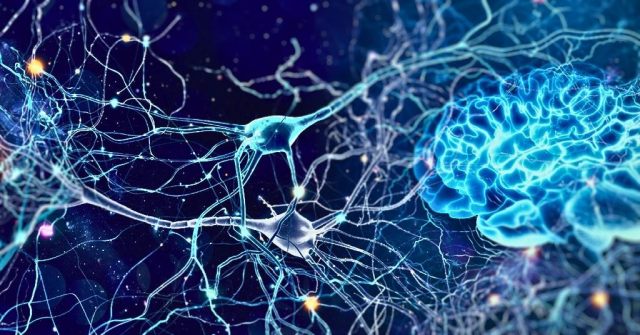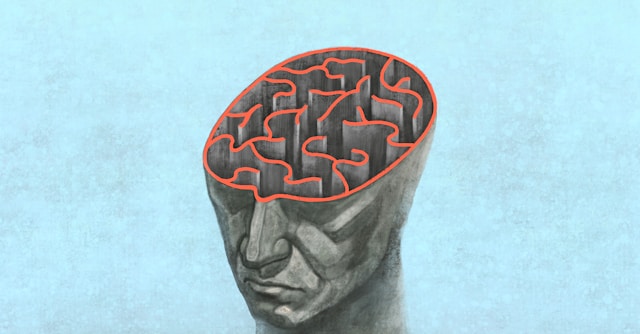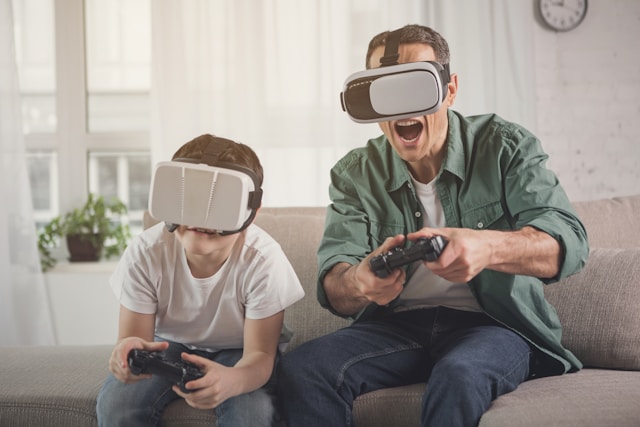Okay, let’s be real: ever feel like your brain could use a bit of a tune-up? You know that feeling, right? When mental fog starts settling in, or you’re just wishing you were a little sharper, maybe a bit quicker on the uptake? Yeah, you’re definitely not alone there. In this crazy fast-paced world we live in, keeping our minds agile is seriously more important than ever. For ages, we kinda turned to things like classic crosswords or jigsaw puzzles, which are great! But guess what? Now, there’s this powerful evolution: digital puzzles.

And trust me, these aren’t just games. They’re actually this fascinating mix of technology and cognitive science, offering some pretty cool ways to boost our brainpower. So, let’s dive into how these engaging tools are kind of reshaping how we think about mental fitness.
How Digital Puzzles Enhance Cognitive Function
So, what’s actually happening up there in your head when you get totally sucked into an online logic puzzle or maybe a colorful matching game? Well, it basically boils down to this amazing concept called neuroplasticity. Just think of neuroplasticity as your brain’s awesome ability to rewire itself by forming new connections, like, all throughout your life. It’s kinda like exercising a muscle, you know? The more you challenge your brain in specific ways, the stronger and more efficient those brain pathways get.

And that is exactly how digital puzzles enhance cognitive function. They’re like targeted workouts for your mind. Solving a Sudoku on your tablet? That gets your logical reasoning and working memory pumping. Trying to figure out a tricky spatial puzzle app? That engages your visual processing and problem-solving skills. Even simple word search games get your language centers buzzing. Basically, each type of puzzle lights up different networks in your brain, encouraging it to be more flexible and grow. See? These aren’t just passive things you do; they’re active brain stimulation activities that directly help with cognitive skills improvement.
The Benefits of Digital Puzzles for Brain Health
Okay, so the perks of adding digital puzzles to your routine? They’re actually pretty numerous and significant! Let’s break down some key benefits of digital puzzles for brain health:
- Better Memory: Lots of digital puzzles make you hold info in your head (that’s working memory) or remember patterns and rules (long-term memory). Playing them regularly can really strengthen those memory muscles. Wondering how to use digital puzzles for memory improvement? Well, maybe start with games that specifically challenge recall or remembering sequences.
- Stronger Concentration: Let’s face it, in a world buzzing with distractions, focusing on just one thing can be tough, right? Digital puzzles often need you to pay close attention to spot details, follow logic, or plan your next move. These digital puzzle activities for improving concentration basically train your focus, just like working out a muscle.
- Sharper Problem-Solving: Puzzles, at their heart, are just problems waiting for you to solve ’em. Tackling these challenges regularly sharpens your ability to look at situations, spot patterns, come up with strategies, and test out solutions – skills that are super useful in real life too!
- Quicker Thinking: Many digital puzzles have time limits or reward thinking fast, which can potentially boost your processing speed and reaction time. You might notice the impact of online puzzles on mental agility when you start grasping info quicker or making faster decisions. Pretty cool, huh?
- Less Stress: Yeah, they can be challenging, but that focused state you get into while solving a puzzle can also be surprisingly meditative. It’s a nice little escape from daily stress and helps you relax – which is a huge part of overall mental fitness.
I mean, think about the last time you got really lost in a challenging game. Didn’t the rest of the world just kind of fade away? That intense focus? That’s exactly the kind of mental workout that brings all these cognitive benefits.
Digital Puzzles as Cognitive Therapy Tools
But wait, there’s more! The power of digital puzzles actually goes beyond just casual brain training. They’re getting seriously recognized as valuable digital puzzles as cognitive therapy tools. Neuropsychologists and therapists are really starting to explore how they can be used in different ways:

- Rehab: For folks recovering from brain injuries or strokes, certain puzzle games can be a really engaging way to help retrain cognitive functions that were affected, like attention, memory, or planning skills.
- Supporting Neurodevelopmental Conditions: Some digital puzzle platforms even have games designed specifically to help people with conditions like ADHD improve their focus and organizational skills. It’s all about tapping into cognitive development through targeted play. Pretty smart!
- Helping Seniors Stay Sharp: Keeping our minds sharp as we get older is super important, we all know that. Digital puzzles for elderly cognitive support offer activities that are easy to access and stimulating, helping maintain mental sharpness and maybe even delay cognitive decline. There’s ongoing research looking into the effectiveness of digital puzzles in reducing dementia risk factors, and honestly, the initial results for certain kinds of cognitive training look promising.
What makes these digital platforms so great for therapy is that they’re interactive and often adaptive. This means the difficulty can be tweaked to fit exactly what someone needs.
Research Spotlight: What Studies Say About Digital Puzzles
So, what does the science actually say? Well, cognitive science folks are actively digging into the link between playing digital games and brain health. Of course, more research is always good, but right now, the studies are painting a pretty encouraging picture when it comes to research on digital puzzles in cognitive enhancement.
Several studies have actually found connections between regularly playing certain types of brain-training games (yep, often puzzle-based ones) and getting better in specific areas like planning, thinking speed, and working memory. There are even some case studies on digital puzzles and brain function showing people successfully using these tools as part of their rehab.
Researchers are especially curious about the neurological benefits of solving digital puzzles. Get this: brain imaging studies sometimes show more activity in the parts of the brain linked to attention, planning, and memory while people are playing puzzle games. This suggests there could be real, tangible changes happening in brain function! Now, maybe claims about drastically boosting your IQ are a bit much, but the evidence backing up the idea that consistent puzzle play can enhance specific cognitive skills? That’s definitely growing.
Choosing Your Brain Workout: Best Digital Puzzle Games for Brain Training
Okay, with so many options out there, how do you even pick the best digital puzzle games for brain training? Honestly, the key is variety and finding puzzles that actually challenge you (like, make you think a bit!). You might want to check out these popular types:
- Logic Puzzles (think Sudoku, KenKen, logic grids): These are awesome for reasoning, deduction, and working with numbers.
- Word Puzzles (like Crosswords, Word Searches, Anagrams): Great for boosting your vocabulary, language skills, and spotting patterns.
- Spatial Reasoning Puzzles (stuff like Tangrams, Jigsaws, Tetris-style games): These help enhance how you process visual info, mentally rotate things, and understand space.
- Memory Games (you know, matching pairs, remembering sequences): These directly work on your working and short-term memory.
- Strategy Puzzles: Games where you need to plan ahead can really improve those executive functions – like organizing and decision-making.
And looking ahead? Some of the latest trends in digital puzzles for cognitive science are pretty cool. We’re talking about integration with AI for super personalized challenges, using VR/AR for really immersive puzzle experiences, and even adding social features so you can puzzle with friends or compete. These digital learning tools are always changing and getting better!

Your Brain’s Digital Playground
Basically, digital puzzles are a super fun, easy-to-access, and honestly, increasingly clever way to get in some vital brain stimulation activities. Whether it’s boosting your memory and concentration or even potentially acting as cognitive therapy tools, you just can’t deny their impact on mental fitness and cognitive science. They really tap into our brain’s incredible neuroplasticity, giving us targeted workouts that help with cognitive skills improvement.
So, hey, next time you’ve got a few minutes to spare, how about swapping that endless scrolling for a challenging digital puzzle? Just think of it like taking your brain to the gym! Have you tried weaving digital puzzles into your day? Noticed any cool benefits? It’s really never too late to start exploring this awesome digital playground and give your brain the little boost it deserves. You got this!
